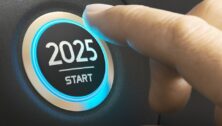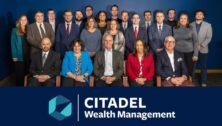Delaware County Leadership: David Freeman, CEO of QNB Bank
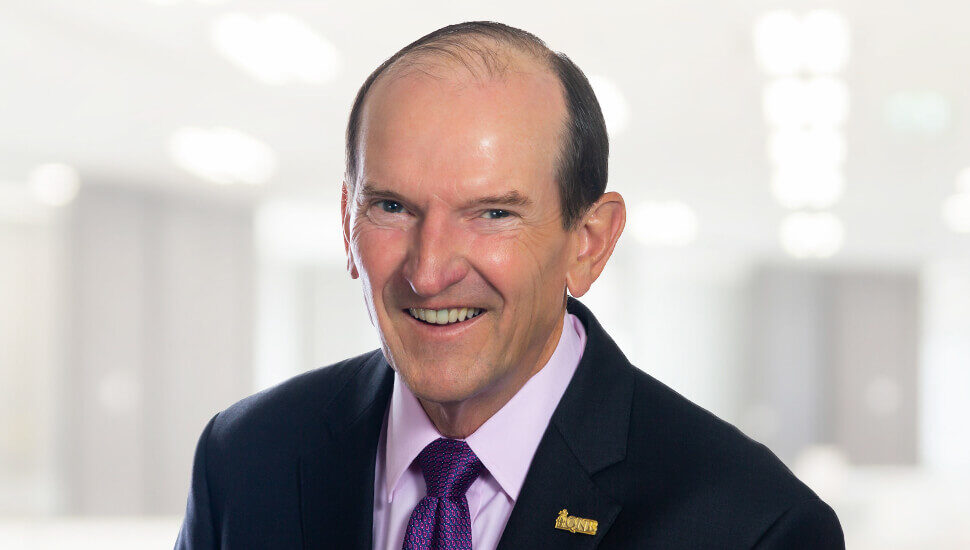
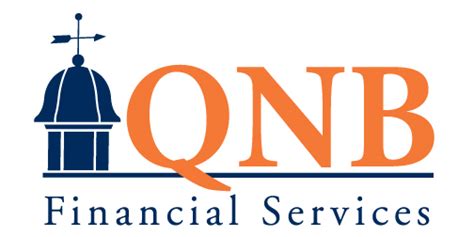
David Freeman, the CEO of QNB Bank, spoke with DELCO Today about growing up in Columbus, Ohio; getting married right out of high school and then completing his undergraduate work as a part-time student and full-time worker; and how he entered banking in 1975.
Freeman also discussed what made him fall in love with the job; the almost 50 years he’s spent in the industry; how he landed at QNB; and the challenges and opportunities that lie ahead for his community bank.
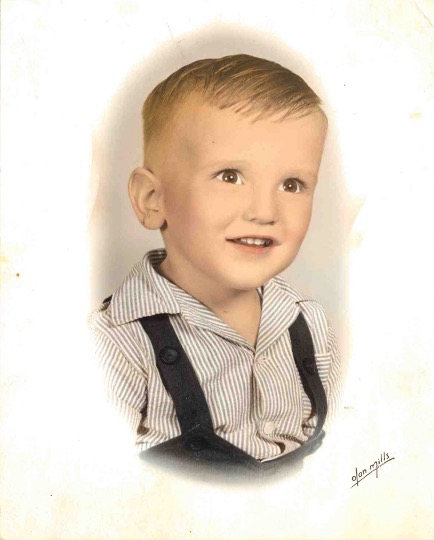
Where were you born, and where did you grow up?
I was born the youngest of six kids in Columbus, Ohio, in 1956 and spent all my life there until I left in 1993.
What did your parents do?
My father did a lot of different things. He was a professor for some time at Denison College and Wittenberg University while he was working on his Ph.D. He did public relations work for a hospital and worked in various consulting positions.
After I was born, he was the Finance Director for the City of Columbus with Mayor Westlake. After that, he went to work for the State of Ohio for quite some time in different positions.
My mom stayed home with us kids. She had three years of college, and later, she decided to go back to finish her degree at Ohio State University. She taught elementary school in inner-city Columbus for many years. She really loved teaching, and it became a huge part of her life.
What do you remember about growing up in Columbus?
We were in the city, about two miles north of Ohio State’s campus, in an area of the city called Clintonville. It was a nice neighborhood. Columbus had excellent public schools. As so many others say, as long as I was home for dinner, I was out and about for the entire day. We were out riding bikes and playing games. Growing up, the best Christmas gift I ever received was a bicycle when I was eight!
Did you play any sports growing up?
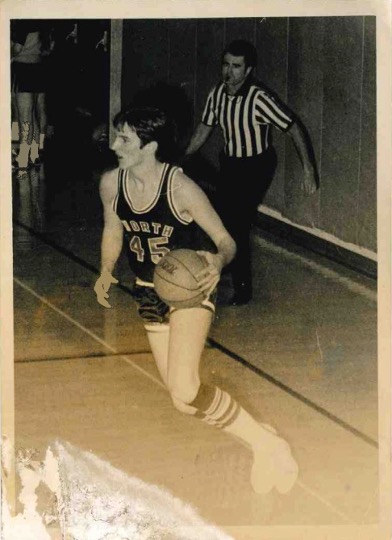
I played basketball, football, and baseball in the local rec league. Those were the only sports available back in those days. I was best at basketball and played center growing up before moving to small forward in high school. I didn’t have all the physical talent, but I was a good player fundamentally.
Did you have any jobs growing up?
I subbed paper routes a few times for some of my friends. I also was part of a group of kids who cleaned the buildings at the Ohio State Fair. It’s a week-and-a-half in August, and I worked from eighth grade through my high school years. We would start at 9:00 PM and work until 1:00 or 2:30 in the morning!
What lessons did you take away from those jobs that still stay with you today?
I learned that teamwork was the best way to get out of there as quickly as possible! We were paid a flat rate, no matter how long it took, so we tried to work together to make the work go faster. Our first year there, we didn’t know what we were doing, so we listened to those who had done the job before us and had the experience.
What kind of music were you listening to back then?
I was, and I still am, a big rock-and-roll fan. When I was four years old, I started listening to my two older sisters’ records and could operate the record player. I’ve extended my taste to classical music as well. I am a huge Beatles fan. I’ll never forget being at the seventh-grade sock hop, and the first slow dance I ever danced to was ‘Hey Jude’ by the Beatles. I was too shy to ask any girl to dance. So, a girl walked across the gym floor and asked me! It’s a long song to dance to!
Where did you end up going to college?
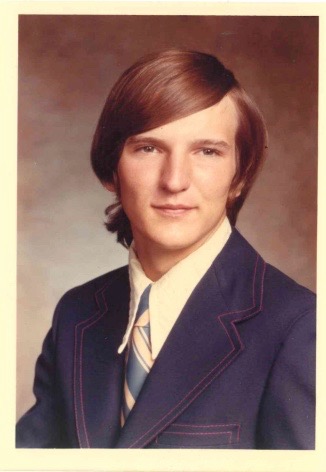
I was set to go to Ohio State in the honors program. At the time, all high school graduates were accepted at any state university. I had an excellent GPA and did well on the ACT. Then, my high school girlfriend and I decided to get married a year out of high school.
We got married, and I needed to work, so I ended up finishing my undergrad at Franklin University in Ohio, a school built around individuals who work and go to school part-time. I was seven years undergrad at Franklin and then did a weekend program at Ohio State for my MBA before finishing at Stonier Graduate School of Banking.
When did you discover that you had a calling in banking?
It was in 1975. I was getting married in August, and I worked in a few different places because it was a tough economy. I was working about 36-hours a week at JC Penney when my boss told me I would be cut back to four hours a week. I walked around downtown Columbus and applied to a few places, including Dollar Savings Bank. My father knew the Dollar Savings Bank’s CEO, who hired me as a teller. Almost 50 years later, I’m still in the business.
What caused you to fall in love with banking?
As I was successful, I moved up in the ranks through promotions, and by the time I was 28, I had a decent-level position and expertise in the field. To do anything else, I’d have to take a step back. The forward momentum is appealing.
Overall, I’ve always enjoyed the work. I enjoy the customer contact. My favorite part of the job is meeting our business customers and hearing their stories of how they’ve become successful.
Looking back over your career, Dave, who were the people who saw promise in you?
I had been at Dollar Savings for a few years, and I was looking to move forward to branch manager. Still, the fact that I didn’t have my college degree allowed others to be promoted over me. I applied for a job and was hired at Cleveland Federal. My boss, Bill Dixon, guided me and helped me in terms of how I should present myself and always pushed me outside of my comfort zone.
A couple of years later, that branch was sold to another Savings and Loan, which grew from two to nine branches in a year. I was involved in the hiring, training, and setup of those branches. I found that I was very good at picking the best people for the job.
What do you think Bill saw in you?
He told me that one of the reasons he interviewed me was because my application was very neat. He also liked the fact that he and I went to the same high school and did well in school. He felt that I was a smart guy, who needed some polishing, and that I’d learn the rest on my own.
You mentioned you were good at finding the best people for the job. What qualities were you looking for?
I looked for people who already thought of a solution if they presented you with a problem. We mainly hired people with experience at other banks, so they needed to know how to get things done. Once we had one of the new branches open, we would take everything we learned and apply it to the next opening. By the time we opened the seventh branch, we had a well-operated system. We had no infrastructure – no facilities group of folks helping us move things – we had to figure it out on our own. That was a tremendous learning experience for me and the rest of the team because there wasn’t anyone to call on; they just left us to figure it out.
Was there anyone else who saw promise in you?
Home Savings had gone through a transition where they wanted to be more of a bank and less of a savings and loan branch. Ed McKeon came in, along with Bill McNamara, and they taught me the commercial banking world and business lending instead of traditional consumer-oriented savings and loan business. They were both mentors to me, and when things went south at Home State, they helped me get a job at Huntington National Bank.
How did you end up at QNB?
I had a saga! I went to Huntingdon Bank, then Chase had bought a few savings and loans in Ohio, and I worked for them for seven years before they left Ohio.
I then went to PNC in Dayton before heading to Cincinnati and Pittsburgh. I liked working for PNC, but the organization is very bureaucratic and political, which was not my forte. I was sort of looking for a job in some respects, but also busy with work and family. I was actually in the mix for a job that my then-boss was also looking at, so he turned the recruiter on to me for a different position at another bank!
I ended up working for Fulton Bank as the Division President in York. That’s when I was able to really dive back into community banking. We were also involved in the Pennsylvania Bankers Association, so I had great exposure there too. I always knew I wanted to run a community bank, and an opportunity came in 2010 to run QNB, and here I am.
What are the immediate challenges and opportunities you’re focused on at QNB?
We have an immediate challenge of trying to find people to fill entry-level jobs at the bank. Before the pandemic, we’d have a handful of jobs available, and now we are looking for 10 or more spots to fill.
A long-term challenge for any community bank is how do you stay relevant to our customers. What are we doing that will make someone say I’m going to bank with you over Chase or PNC? We think we have that part figured out. We grow the number of customers we serve every month. We have a strong growth in the business side of our bank, which is a place we feel we can differentiate ourselves from the other guys.
It’s a bit cliché, but we offer a customer service experience that the big banks cannot by listening to our customers, making discretionary decisions, and solving problems. We always try to do the right thing for our customers, which gives us a good reputation in the community. We get many positive reviews and referrals from our customers.
How does QNB want to be known in the marketplace?
We want to be viewed as a trusted advisor to our customers. We want to be someone they can come to, find out their financial needs, look out for their best interest, and sell them products that are appropriate for what they want to accomplish. We think that’s even more important, on our lending and investment side. That’s where we believe we can make a difference in our person-to-person interactions rather than through a machine.
What do you do with all your free time, Dave?
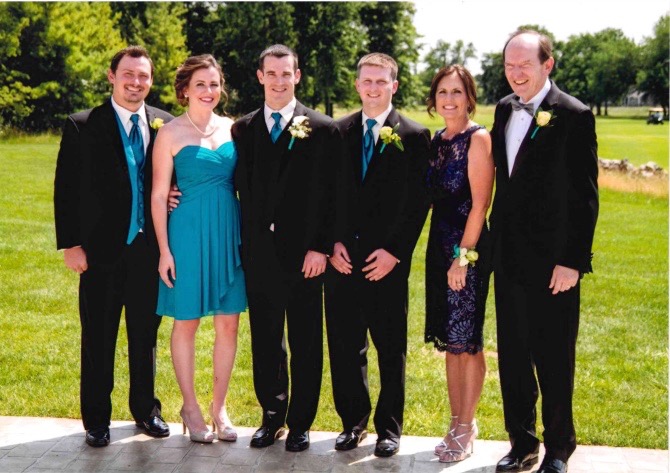
Our four kids are grown, so there’s more free time now. My wife and I like to play golf together. We do a decent amount of traveling together in the United States, and I try to read as much as I can.
What is the best book that you read recently?
I read everything from mysteries to novels to sports books. I’ll read it all. I’m currently reading the second book by the same author. Her name is Candace Millard. Candice has written three books, all of them non-fiction, about historical figures. I read the first one on Winston Churchill in South Africa. Now I’m reading River of Doubt about Teddy Roosevelt in the Amazon. Her research is thorough and very impressive. It’s impressive when you can take non-fiction and make it read like a novel.
Dave, what gives you hope in a world full of doom and gloom?
I’m an optimist, so I’m always a glass-half-full person. I recently read that violence is at its lowest point in history despite all the doom and gloom. I believe that the arc of history, in our country mainly, is actually positive. We continue to have many areas that need improvement in this country, and it is good to see that we are free to have conversations allowing all points of view. My hope is people are listening!
Finally, David, what’s the best piece of advice you’ve ever received?
My dad and mom were strong believers in learning and doing well academically. We kids used to joke that we could get away with a few things if we got good grades.
They believed that you had to be knowledgeable about the world to be successful in this world. You need to be knowledgeable about your work and everything around your work that could affect it.
That’s been important to me. I’ve tried to stay in tune with what’s happening in our local markets, the banking industry, and technology. If I don’t stay aware of that, I will become obsolete. Whenever I think I’ve figured it all out, it usually means trouble. I need to constantly be learning and paying attention.
_______
Publisher’s Note: Laura Manion contributed to this leadership profile.
Join Our Community
Never miss a Delaware County story!
"*" indicates required fields











![95000-1023_ACJ_BannerAd[1]](https://delco.today/wp-content/uploads/sites/3/2023/03/95000-1023_ACJ_BannerAd1.jpg)

















